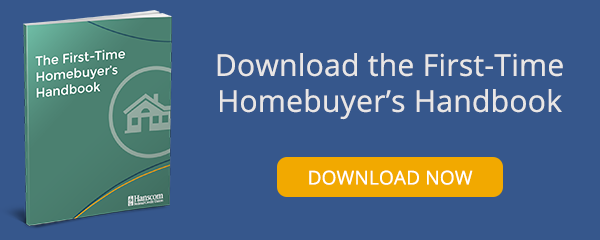Knowing that you're ready to buy your first home is an exciting moment. You've got enough saved for a down payment, you're so done with renting, and words like "ARM," "cap," and "points" have taken on new meanings. But even when you're confident you're ready to enter the housing market, there are six home-buying mistakes you need to avoid that can cost you big time, both now and later:
1. Loving the House, Not the Neighborhood.
Let's face it. Most of the fun in buying a home is in the hunt: attending open houses, studying real estate websites at lunch, and doing drive-bys at night, all of which culminate in that magical moment when you step into a house that feels so absolutely right. Except for:
- The neighbors. Maybe their houses aren't as well maintained compared to the house you want to buy.
- The street. It's so busy, and because the commuter rail crosses it, traffic backs up in front of the driveway.
- The town. It's actually a great town, but living there means a longer commute.
It can be tempting to overlook the drawbacks of a neighborhood, especially when you've fallen head-over-heels for a home smack-dab in the middle of it. But this is a critical error that can cost you. You may find yourself resenting your home later on. When it comes time to sell, prospective buyers may notice these flaws. Your house can take longer to sell and it may not appreciate as much in value, even if it's beautiful and well-maintained.
Choose the neighborhoods you're interested in living in first, then look at homes in those neighborhoods. There are many factors you can look at, both objective (a school that gets high marks, accessibility to public transport, low crime rates) as well as subjective (great nightlife and restaurants around the corner, plenty of open space and bike trails if you're athletic). And even if the neighborhood itself is ideal, if it means commuting an extra two hours a day and you already loathe commuting, it might not be the best neighborhood for you.
2. Assuming Your Credit Score and History Are Good Enough.
Have you checked your credit score and reviewed your credit report thoroughly before applying for a mortgage? You may think you've got great credit — you pay your bills on time, you've never had a delinquency, and last time you checked, your credit score was great — but if you haven't checked recently, there could be something preventing you from getting the best interest rate on your mortgage. A difference of just 0.25% in an interest rate can mean thousands of dollars over time, especially if you get a fixed-rate mortgage.
Before you even think about applying for a mortgage, order a copy of your credit report and take a look at your credit score:
- Are there any errors on your report that can be corrected? These can include accounts that don't belong to you, accounts that were closed but are still reported as open, and reports of late payments that are incorrect. Contact the credit reporting bureau and get these errors fixed.
- Is your credit score looking good? The best interest rates usually go to those members who have credit scores 720 and higher. If your score is lower, look for ways to improve it. If you're maxed out on your credit cards, pay them off or at least get their balances down low enough so that your utilization rate improves (ideally under 30% of your available credit), which is a key factor used in computing your credit score. Avoid opening new lines of credit before you apply for a mortgage; multiple hard pulls on your credit will have a significant effect on lowering your score.
The last thing you want to be is surprised by your credit report and score after you apply for a mortgage. Get on top of your credit today so you can be confident you're getting the best mortgage rates tomorrow. At Hanscom FCU we offer a free credit report and score review, where we'll show you how to interpret and improve both your review and score. Contact us to make sure you're ready to move forward with a purchase. Note that when we pull your credit report for a review, this will affect your credit score. Make sure you do your credit report and score review months in advance of applying for a mortgage to give your score time to bounce back. And it will bounce back as long as you continue to keep current on your payments and avoid any other hard pulls on your credit.
3. Making an Offer Before You Have Financing Lined Up.
This can happen when you've got plenty of cash for a down payment (more on that later) so you start house-hunting on weekends. You find the perfect home and before you know it, you're making an offer and counting on squaring things up with financing when your offer is accepted.
But many new homebuyers learn the hard way that going into the housing market without their financing lined up is a fool's game. Especially in hot housing markets, your competitors (other first-time homebuyers, as well as experienced home owners) are making their offers with their financing signed, sealed, and ready to deliver. This tells the seller that barring an unforeseen event, these buyers have the funding to make good on their offers. You? You might get funding for your offer through a financial institution, but there are a multitude of reasons why you may not. And sellers are simply not going to wait around for you to do your paperwork, and then wait for an approval, which may not come; they want to sell their house quickly, and they're going to go with the buyers who are committed and ready to deal.
Bottom line: when you're feeling like it's time to get serious, get yourself to Hanscom FCU and get pre-approved for a mortgage. We even have a first-time buyers program you can look into! With a pre-approval in hand, you'll know what you can afford, you can move quickly on a property you love, and you'll have a better chance at getting your offer accepted.
4. Going to the Bank of Mom and Dad for a Down Payment Loan.
Let's be frank. Saving up for a down payment on a home is hard. Even if you're a careful saver, there are a multitude of reasons that make saving difficult, everything from having student loan payments and a high monthly rent, to the sheer amount of money you have to save...it's a ridiculous amount. The old rule of thumb is 20% of the purchase price to avoid private mortgage insurance, or PMI, but according to the National Association of Realtors, first-time homebuyers average a 6% down payment. Still, that's a whole lot of Benjamins!
That's why many first-time homebuyers think, "No problem! I'll ask Mom for a loan and I'll pay her back!" Unfortunately that strategy isn't going to fly with lenders. Unless Mom is willing to give you a gift of the money (which comes with its own rules and caveats), the loan will increase your debt, which will affect your debt-to-income ratio. Remember: your lender wants you to be able to buy a home you can comfortably afford; if you've got to worry about paying your down payment loan back, along with your mortgage, you could be setting yourself up for a financial fall, something no one wants to see.
And if you're thinking about simply not telling your lender about the loan? Or saying it's a gift instead of loan, but in truth, it's a loan? Lenders are smart about this. Don't do it. There are other legitimate ways to come up with a down payment, including no-money-down programs! Talk to your lender and ask them about special programs for first-time buyers. There's a solution out there for you to get you into the home of your dreams.
5. Buying More House Than You Can Afford.
New homebuyers make the mistake of thinking they can max out their home-buying budget and be fine. After all, they wouldn't have been pre-approved for a mortgage that high if they couldn't afford it, right?
But here's the thing: when you max out that budget, you're giving yourself no wiggle room financially. Home ownership can be expensive, and we're not just talking about the monthly loan payment, taxes, and insurance. There are utilities to consider. If you purchase a big house, you could be looking at big heating, cooling, and electric bills. When you rented, your water, garbage removal, and plowing might have been taken care of by a management company or landlord. Now you're a homeowner. Those expenses are yours, and a particularly harsh winter or scorching summer can kill your budget. (P.S. Be sure to ask the current owners if they can provide you with their monthly costs for utilities, cable, and other services. Having this information can help you make a more informed financial decision.)
On top of this, you've probably tapped all of your savings to buy at the top of your range. What if you lose your income or get sick and can't work? And what if you don't want to reduce your current standard of living once you own a home? We don't want to be pessimists, but the financially savvy thing to do is buy less than what your lender says you can afford. When the bills start rolling in, you'll be confident you're well equipped to handle your expenses responsibly.
6. Thinking That All You Need Is a Down Payment.
You've signed the mortgage paperwork, gotten the house keys from the seller, and you're a homeowner. Congratulations! By now, you've learned that having a down payment wasn't enough. You also needed anywhere from 2% to 5% of the purchase price of the house to cover your closing costs. Good thing you saved some additional cash beyond your down payment!
As you admire your new home, you realize you didn't notice it before, but the fixtures in the bathroom are pretty ugly and need to be replaced. The sellers took the refrigerator, and there's no air conditioning. The wood floors could stand to be refinished and the first thing you'd love to do is invite your family and friends over for a barbecue, but you'll need a grill to do that.
One of the most exciting things about buying your first house is actually making it your home. Having some savings on hand to help you furnish and decorate your place can help ease "buyer's remorse," which is a fairly typical thing most homeowners go through after buying a new property. Sometimes all it takes to get over that remorse is getting your belongings in place and being able to purchase a few things that make the house feel like yours: a fresh coat of paint, rugs on the floors, a gas grill for the patio. Having some additional cash on hand to be able to do these things can make buyer's remorse dissipate faster, so be sure to save some additional money beyond your down payment. You'll feel more comfortable in a shorter amount of time and can truly begin to enjoy the benefits of owning your own home.
We've published a guide specifically for first-time homebuyers. Download your free copy for a step-by-step explanation of the home-buying process.
Others are reading:

-1.jpg)


.jpg)









Comment